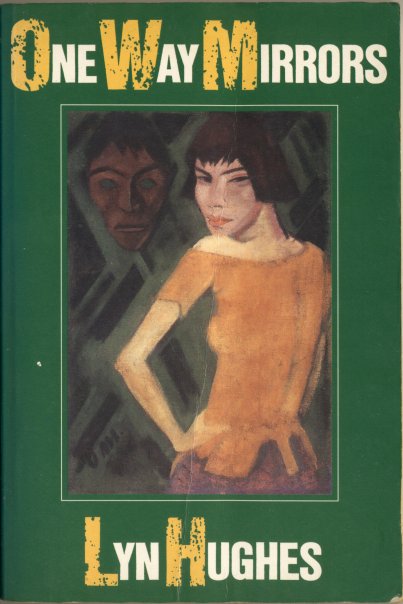
One Way Mirrors is set in the deceptive calm and luxury of Johannesburg’s white liberal suburbs.
Winter, the season of parched lawns and nights below zero, is also the season of affairs. Rosemary Williston is amiably married but, like most of her friends, lives in opulent paralysis. Until she meets Louise. Then begins a passionate, obsessive affair that threatens Rosemary’s safety and fractures her sense of herself.
In prose of sparkling precision and unconstrained sensuality, Australian writer Lyn Hughes reveals the heart of a modern woman tested by her own limitations—and a dying, morally bankrupt society that she can’t escape.
One Way Mirrors was published by Allen and Unwin in 1993.
ISBN 1863734597
Reviews
‘…this novel…left me with a very clear picture of a doomed, self-destructive lifestyle that wasn’t markedly different to that enjoyed by many Australians. In realising this portrait, Lyn Hughes has let her characters speak for themselves…It would be very difficult to take sides when all parties involved in South African politics are compromised by its attendant evil. The best one can do when confronted with such a situation is what Lyn Hughes has done, remaining true to her characters and writing with clarity.’ The Australian.
‘This is a sad book…But gradually, I came to feel that maybe this discomfort was what the author intended. These are people who look through one-way mirrors, who never see the reality of others and do not allow others to impinge on them. They live their comfortable but alienated lives at the expense of others—but also at the expense of themselves.’ The Sydney Morning Herald
‘Obsession is the focus of (this) recent Australian novel…but its real setting is the fantasy-ridden minds of its characters…Jealousy and impossible longings dominate Rosemary, the central character in Lyn Hughes’ novel. Hughes captures well the progress of a passion and its self-demeaning aftermath. In the background is the uneasy knowledge of racial tension and revolutionary activities…Perhaps the most striking aspect of the novel is that it makes one conscious of sectors of South African society which, apart from the occasional impingement of social and economic problems, might as well be the Lakes District.’ The Canberra Times.
‘…(a) curiously disturbing novel. Hughes’ writing is cool and at times almost detached. She’s mastered the old E.M. Forster trick of table-topping, describing the most significant events in the simplest manner without loading the prose with judgements and emphasis. I was expecting an heroic tale of brave black and white South Africans doing something about ending the tyranny. This novel with its at times dazzling descriptions of where the action isn’t, ends up being a much more powerful indictment of the whole social structure’. The Star Observer